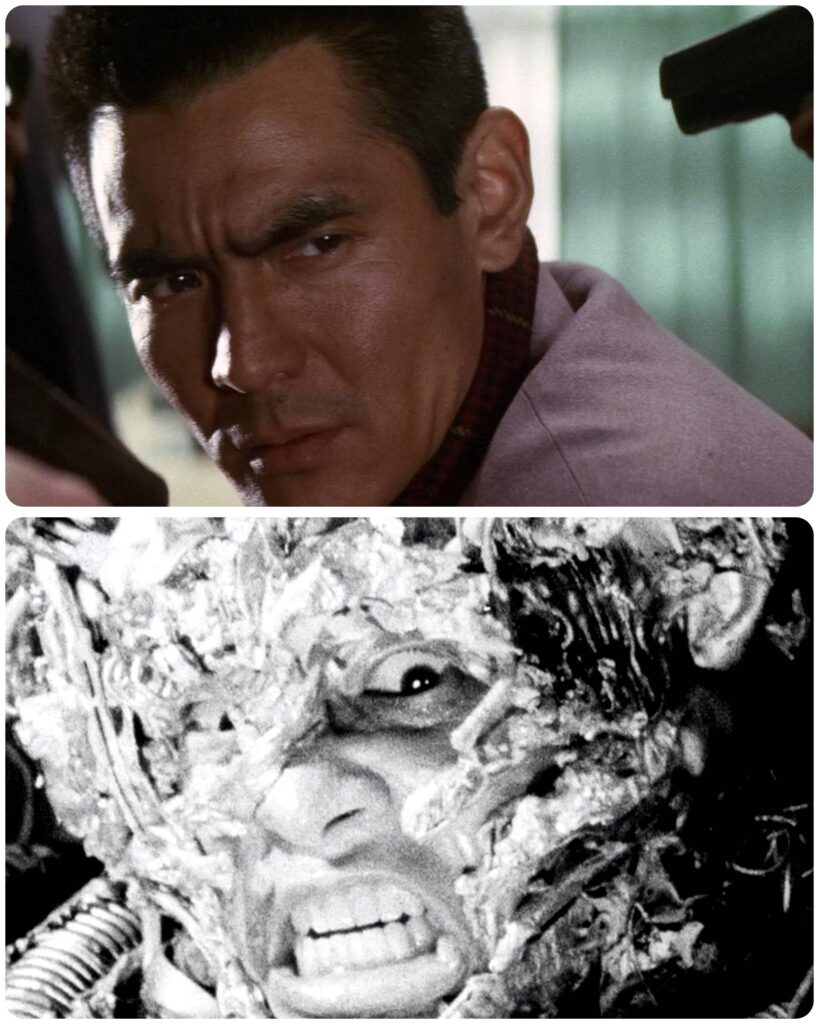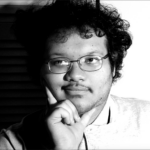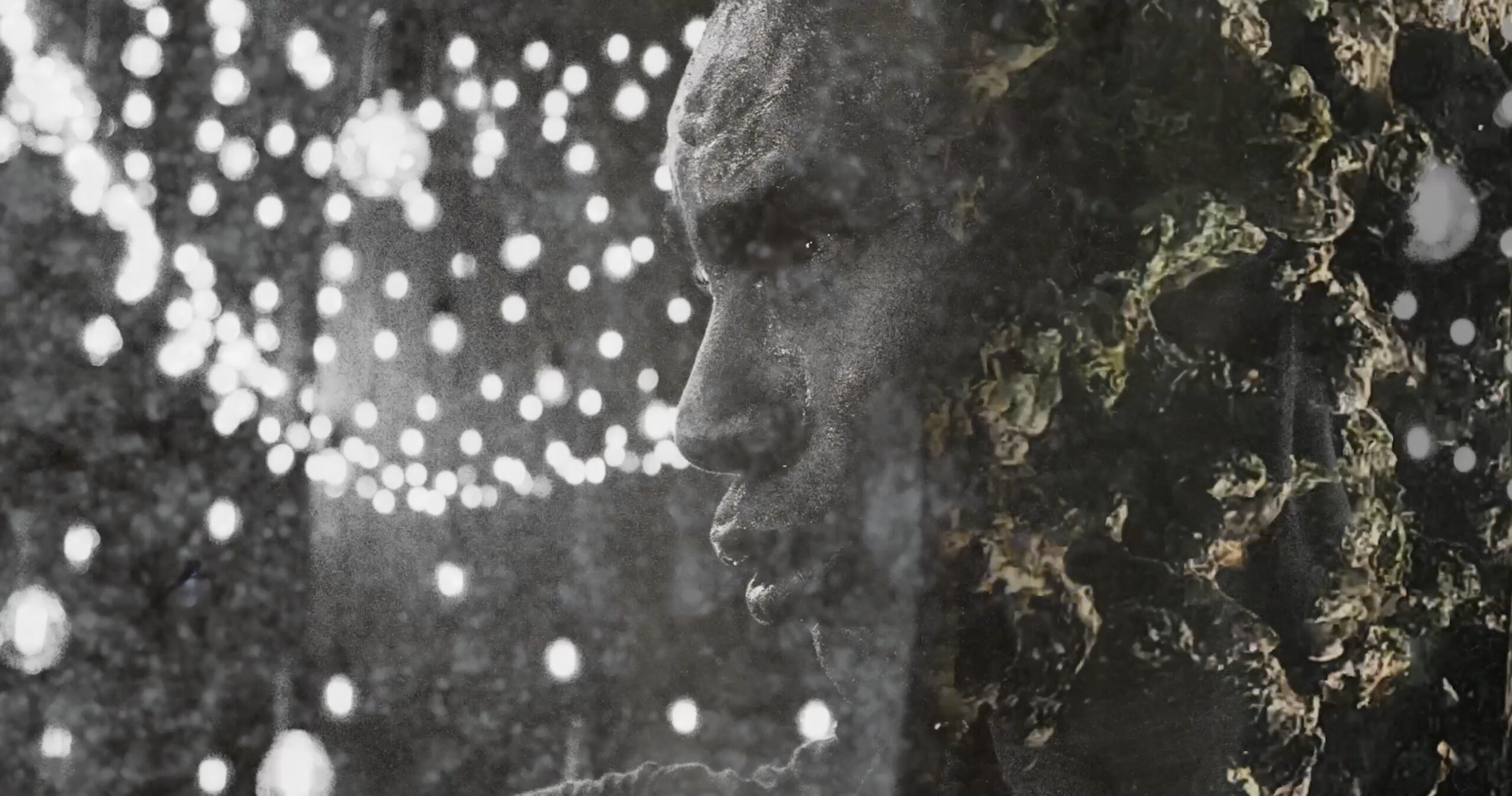If you want to watch a short film that is blunt, in-your-face, and smacks you out of nowhere, look no further than the short MANIFESTO [FOR CONCRETE POETRY], directed by Richard Hamasaki, Jody Stillwater & Sebastian Galasso. The imagery, editing combined with the avant-garde archival use of texture and imagery, bring to life the poem of the late Wayne Kaumualii Westlake, a poet and educator who explores Hawaiian and indigenous cultures. When I first saw the film at the Made in Hawaiʻi: Manifesting Mana shorts, I was surprised by the intense vibes it gives off, with its voiceovers, visuals, and poems flashing across the screen.
I had the opportunity to talk and interview one of the filmmakers, Sebastian, and his conversation was interesting in that he discussed inspirations and references. This film also explores darker themes through voiceovers, many of which were digitally changed to sound more dramatic and robotic, expressing the poem in both visual and audio form. Speaking of which, a majority of the film is shown in the form of footage of land and ocean, while juxtaposing with paper and poems, giving that archival and cinema verite style of film. In my interview with Sebastian, he mentioned that many of his inspirations came from Malaysian and Japanese Cinema.
I pointed out that the archival style that the film uses reminds me of Kinji Fukusakuʻs BATTLES WITHOUT HONOR AND HUMANITY (1973). Taking place during post-WWII Japan, with newspaper clippings presenting the chaos in the wake of the end of WWII and the Americans occupying Japan, along with that, the cinema verite style of filming, allows the film to keep up with its fast-paced story and its insane fight sequences. Another inspiration behind the film was the cult-classic Japanese body horror film TETSUO: THE IRON MAN (1988) directed by Shinya Tsukamoto. The film closely resembles the aesthetics, the fast-paced action and editing that creates chaos, disjointed cuts that increase tension, pacing and anxiety.

In the context of MANIFESTO [FOR CONCRETE POETRY], the film tells the poem and the visuals, combining fast editing, quick shots of fish, the environment, people, and a provocative voiceover. But to me, I feel like this film must have this style of storytelling because of the history of colonialism, racism, and how indigenous cultures were banned from speaking their language like Hawaiʻi in the early 20th century.
The aesthetics and cultural context of the film reminds me of another short film called PŌ’ELE WAI directed by Tiare Ribeaux. PŌ’ELE WAI is an experimental indigenous film that delves into the issues of the Red Hill and itʻs environmental impact on the island.
Like MANIFESTO, it involves telling historical and cultural context through performative and poetic storytelling. They also express the spiritual realm through their use of editing and sound. Voiceovers and cuts reflecting the emotional pain and trauma of their voice and the historical injustice done to indigenous communities through colonialism. The actors and poets portray the pain and trauma, such as the skin rashes and using the Aloʻe plant to heal that rash. In MANIFESTO, the poems are expressed through the cinema verite style, and the voiceovers ranged from dark dramatic and even robotic to express the provocative nature of the poem. It also gives the audience a new reality, pushing this message through the experimental aesthetics of using this provocative and archival element to immerse them into a kind of spiritual awakening. I feel like they deconstruct the idea of reading these poems and flesh it out in a way to get the audiences to think about the world around them and to raise questions that get them issues or themes to discuss about.
The film deals with many lines that are seen as provocative, but what it really meant, is dealing with the reality of deconstructing peoples notion of our thoughts. There are a few lines from the poem that I would like to mention, which are “God is dead, Kamehameha is dead, Chairman Mao is dead, Dada is Deda”. According to Sebastian “All of that is very provocative and is challenging its reader to deconstruct their own, their sort of preconceived notions about, you know, ethics, preconceived notions about what it is to be”. In other words, you had to basically get rid of what you already believed or thought of and now look at it from a whole new perspective. Indigenous cultures are working towards decolonizing the mind, looking through history from the perspective of indigenous cultures, and getting away from the old colonizer mindset that was instilled in us for centuries.
This film expresses storytelling in a way that leaves us with more questions than answers. It forces you to consider a different way of viewing the world we see. What is also important is to see how this film deconstructs the message it is conveying through the experimental route, which in-turn breathes life this spiritual awakening that the audience will take in and consider their views of their mind and the world.
 Richard Aiwohi-Kim born and raised here in Honolulu. He earned a Bachelors of Arts in the Art Studio and Digital Cinema at the University of Hawaiʻi at Mānoa. He is an aspiring filmmaker and artist and studies cinema history, media culture, ethics, and visual culture. Through UH, he has worked on almost a dozen student productions as an editor, production assistant, sound recordist, and DP.
Richard Aiwohi-Kim born and raised here in Honolulu. He earned a Bachelors of Arts in the Art Studio and Digital Cinema at the University of Hawaiʻi at Mānoa. He is an aspiring filmmaker and artist and studies cinema history, media culture, ethics, and visual culture. Through UH, he has worked on almost a dozen student productions as an editor, production assistant, sound recordist, and DP.
The HIFF ONLINE CREATIVES & CRITICS IMMERSIVE (HOCCI) program supports sustainable film criticism in Hawai’i through mentorship and paid career opportunities for Hawai’i-based AANHPI critics. The mission of HOCCI is to broaden diversity in film criticism across the Pacific and use influencer branding strategies to spark career opportunities. The 2024 HOCCI is supported by Critical Minded, a grant-making and learning initiative that supports cultural critics of color in the United States.



